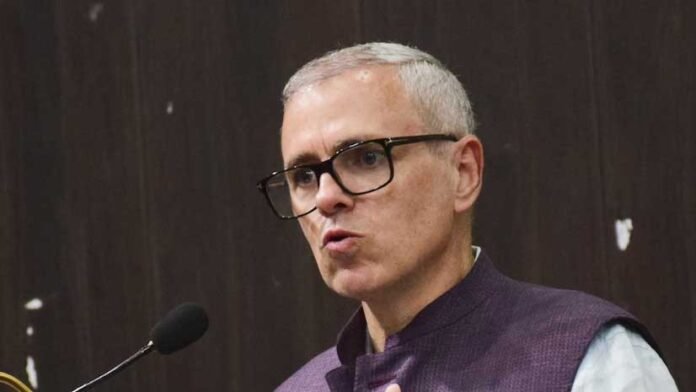SRINAGAR, July 20: Jammu and Kashmir Chief Minister Omar Abdullah has strongly reiterated the demand for the restoration of full statehood to the Union Territory, calling it a constitutional and democratic right of its people. He dismissed any proposal of a “hybrid system” where the Centre would retain control over law and order even after statehood is reinstated.
Abdullah, whose National Conference returned to power nearly ten months ago, emphasized that the promise of restoring statehood was made by the Centre both in Parliament and before the Supreme Court, and that it must now be fulfilled.
“We’re not asking for something extraordinary. Statehood was promised to the people and it’s their right. We are pursuing all options, including legal avenues, to secure it,” Abdullah said in an interview.
He firmly rejected suggestions of a partial governance model, calling it speculative and unacceptable. “There is no such system in India. Why should J&K be an exception?” he questioned, adding that those proposing such models were the same people who doubted whether elections would take place — which were ultimately held with over 64% voter turnout.
Abdullah said his government continues to engage with the Centre at multiple levels regarding statehood, but kept details of his private discussions with Prime Minister Narendra Modi and Home Minister Amit Shah confidential.
While maintaining a cordial working relationship with the Prime Minister, Abdullah clarified that cooperation with the Centre doesn’t mean silence on critical issues. “If things go wrong, I won’t hesitate to speak out. That’s my responsibility,” he stated.
Taking a dig at the People’s Democratic Party (PDP) for its past alliance with the BJP, Abdullah questioned the motivation behind their political choices and accused them of forgetting their earlier criticism of the Prime Minister.
Regarding potential legal recourse, Abdullah confirmed that internal discussions were ongoing within the party and with legal experts to determine the best strategy for pushing the statehood agenda forward.
Addressing concerns about the spread of militancy, Abdullah argued that security has deteriorated since J&K lost its statehood and came under direct central control. Referring to the recent Pahalgam attack that killed 26 people, mostly tourists, he said militancy was previously contained to just a couple of districts during his tenure, but now affects almost every district in the Valley and much of Jammu.
“This clearly shows that an elected government handled security better. We’ve managed before, and we can manage again,” he asserted.
Abdullah criticized the current governance model as inefficient and unfit for a region with a large population and complex challenges. He questioned why, if the Union Territory model is so effective, it hasn’t been adopted in large states like Uttar Pradesh or Maharashtra.
He concluded by warning against the inefficiencies of a dual power structure, stressing that clear accountability and a unified chain of command are essential for effective governance. He expressed hope for a timely and practical resolution with the Centre to address the structural issues and finalize new governance rules.



